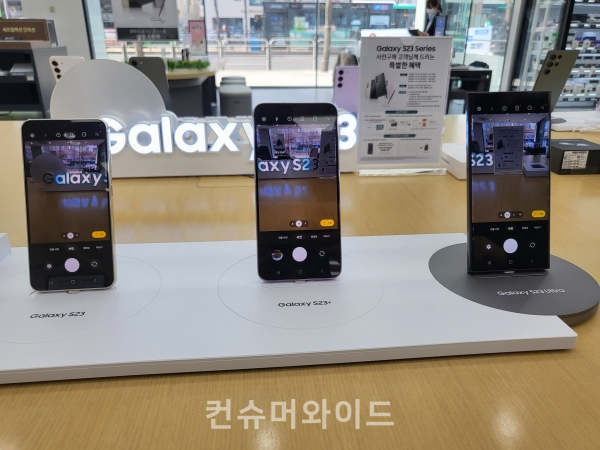
[Consumerwide_Jinil, Kang Reporter / Yohan, Bok Reporter] Some describe that the domestic telecommunication market atmosphere had been murky before Oct, 2014. At that time, subsidies for mobile devices were passed to customers rather in an ambiguous way, and a new term, 'Ho-gang' began to be used in the media. Hogang is a short word for 'Hogu' (an easy touch, a person who is way so nice that people easily take advantage of it.) and Gogaek (customer) in Korean.
Each franchise offered different subsidies. So customers with tons of legwork would get a way better deal than they didn't. In order to resolve this distribution system, which seems irrational, the new law, Mobile Telecommunication Device distribution system reform has passed the National Assembly. This law initially aimed to set regulations on the subsidies for cellular phone devices at the time of purchase.
A decade has gone since enactment of the law. By practicing the special law (Mobile Telecommunication Device distribution system reform), there was no longer 'discrimination' of subsidies when one purchases a cellular phone device at least. Nevertheless, customers are left with even more expenses by three major communication companies, which monopoly the industry, raising the service cost. Eventually, having no competition resulted in this ironic system, 'expensive service with inexpensive device'. In addition, some franchise stores are busy selling their service and device packages along with an illegal subsidy for devices. In conclusion, in the midst of this chaos, consumers have to endure the by-product of mistaken policy. This is what some consumers read about the current situation.
By practicing this new law, surely there is a beneficiary group, the three major communication companies. The marketing departments of each companies seem just shouting out of joy for consequentially they have reduced marketing expenses, which has led to improvement of performance.
The market competition has daunted, however. The number of new subscribers is continually decreasing from 2013, the time before practising the law. The record of new subscribers are 11.16 million in 2013 (before the new law), 7.04 million in 2017, 5.80 million in 2019, 5.08 million in 2021, 4.53 million in 2022.
In response to the critical record, the members of the national assembly are discussing abolishing the law. As a first step, the government has decided to include the reform proposal in the communication market competition improvement policy resolution in June.
Experts say when the Mobile Telecommunication Device Distribution System Reform is abolished, market competition will be vitalized. They also see that extreme competition may not occur this time. There could be differences between prices yet. The entire cost of using mobiles will be reduced finally.
Having all these arguments behind it, if the government still do not see the abolition of the law as an option, then they have got to come up with an innovative resolution which leads a practical market competition.
A complete independence between the service and device sale can be another way of relieving the issue. In the case of IPTV (internet TV), customers can purchase TV (device) independently from the communication service provider.
For now, what matters the most is building circumstances for realistic competition in the market. A genuine competition has the advantage of providing more benefit for consumers. Customers can be led to a rational consumption based on consumption value. I am looking forward to seeing the best choice made in the National Assembly soon.
- [Reporter's note] Cultural consumption and NunuTV, decisive action to turn away from the black market.
- [Reporter's note] Volkswagen, the first electric car in the domestic market, is having the second Recall...They have got to improve in quality, safety, and customer satisfaction.
- [Reporter's note] Vehicle tax changes on July 1st. Is it a reform or confusion?
- [Reporter's note] Consumers won't confide in humanless convenience stores any more, if they are handled carelessly...Food with too much E.coli and distribution of expired food
- [Reporter's Note] Light speed VS turtle speed; Reflecting raw material cost at different speeds in the food market..." Irrational pricing matter"
- [Reporter's Note] Smokeless "Dipping tobacco", why not in the domestic market?... Some see a low tax policy for "dipping tobacco" as worthwhile.
- [Reporter's note] Aspartame might be out of the market eventually, just like Parabens... We've got to check them out thoroughly concerning our body.
- [Reporter's Note] Time to wear masks again... Covid-19 pandemic in summer
- [Reporter's note] A culture of rest and recovery is necessary in the delivery industry.
- [Reporter's note] Another victim of SNS scams, including Tiffany&Co. jewelry (85% sales)... How long has the consumer got to endure alone?

